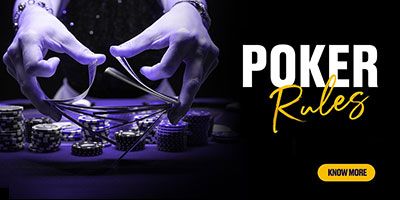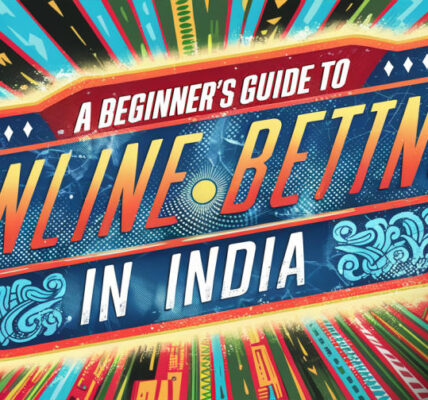Online poker is a game of skill, strategy, and psychology, unlike many other gambling activities that rely on pure luck. Whether you’re a beginner or a seasoned player, there are several techniques and strategies you can use to maximize your chances of winning in online poker. This guide will cover essential aspects such as understanding poker rules, managing your bankroll, exploiting opponents’ weaknesses, and mastering various poker strategies. Let’s dive into how you can increase your chances of success at the virtual poker table.
1. Understand the Rules and Poker Variants

Before you can become a successful poker player, it’s crucial to thoroughly understand the rules of the game. Online poker offers several variants, and each comes with its own set of rules and strategies.
- Popular Poker Variants: The most common types of online poker are Texas Hold’em, Omaha, and Seven-Card Stud. Texas Hold’em is the most widely played version, where players aim to create the best five-card hand using a combination of their hole cards and community cards.
- Game Mechanics: Familiarize yourself with the betting rounds, hand rankings, blinds, and other mechanics specific to each variant. Knowing the rules by heart will help you make informed decisions during gameplay.
2. Start with Low-Stakes Games

For beginners, it’s essential to start with low-stakes games. This strategy allows you to get comfortable with the online poker environment without risking significant amounts of money.
- Build Experience: Playing low-stakes poker gives you the chance to practice your skills, test strategies, and learn how to read your opponents without a heavy financial commitment.
- Lower Competition: At lower stakes, the competition is usually less intense, and you can encounter more recreational players, allowing you to improve your game before moving up to higher stakes.
3. Study Poker Strategies and Concepts

Winning at online poker requires more than just luck—it involves strategic thinking and understanding key poker concepts.
- Hand Ranges: Learning to play based on hand ranges instead of specific hands is a fundamental concept in poker. Instead of focusing on the exact cards your opponent holds, think about the range of possible hands they might have and make decisions accordingly.
- Positional Awareness: Position is one of the most important factors in poker. Playing in late positions (closer to the dealer button) gives you a strategic advantage, as you can observe your opponents’ actions before making your move. while playing poker at diamondexch, you can use these tricks. In contrast, playing from early positions can put you at a disadvantage because you must act before seeing what others do.
- Bet Sizing: Understanding how to size your bets is crucial in maximizing winnings and minimizing losses. Bet too little, and you might not extract enough value; bet too much, and you could scare off opponents. Proper bet sizing is about finding the right balance to achieve your desired outcome.
4. Manage Your Bankroll Wisely

Effective bankroll management is essential in poker, especially if you want to play consistently and avoid going broke. Your bankroll should be a separate amount of money dedicated solely to poker, and you should manage it carefully.
- Set Limits: Never play with money you can’t afford to lose. Set strict limits on how much of your bankroll you’re willing to risk in any given game. A common rule of thumb is to have at least 20-30 buy-ins for the stakes you’re playing.
- Avoid Tilt: Poker can be an emotional game, especially when you suffer a bad beat. Avoid making impulsive decisions or chasing losses while on tilt. Keep a cool head, and stick to your strategy, even when things aren’t going your way.
You Might Also Like, How to Play Online Slots: Rules, Tips, and Winning Strategies
5. Study Your Opponents

One of the most important aspects of poker is learning how to read your opponents. This is where psychology comes into play.
- Observe Betting Patterns: In online poker, you can’t see your opponents’ physical reactions, but you can study their betting patterns. Take note of how often they bet, raise, fold, or check in certain situations. Are they aggressive, passive, or somewhere in between? This information can help you make better decisions and exploit their tendencies.
- Use Notes and HUDs: Many online poker platforms allow you to take notes on your opponents or use Heads-Up Displays (HUDs) that show statistics on their playstyle. HUDs can provide valuable insights, such as how often an opponent folds to a raise, which helps you adjust your strategy accordingly.
- Bluffing and Deception: Bluffing is an integral part of poker, but it should be used sparingly and strategically. Bluffing too often can make you predictable, while not bluffing enough can limit your potential winnings. Pay attention to how often your opponents bluff and how they respond to bluffs, and adjust your strategy accordingly.
6. Focus on Continuation Betting

Continuation betting (c-betting) is a strategy where a player who raised before the flop continues to bet after the flop, regardless of whether they improved their hand. This move is a powerful tool, especially when you have control over the betting.
- Pressure Your Opponents: Continuation bets can apply pressure on your opponents and make them fold weaker hands, giving you control over the pot.
- Balance Your Range: Don’t c-bet every time, as opponents may catch on and exploit your predictable play. Mix in c-bets with value hands and bluffs to keep them guessing.
7. Pay Attention to Table Selection

Not all tables are created equal, and selecting the right one can greatly influence your chances of winning.
- Look for Weak Opponents: Ideally, you want to sit at a table with opponents who are less skilled than you. Look for players who play too many hands, chase losses, or make frequent mistakes.
- Leave Tough Tables: If you find yourself at a table with players who consistently outperform you or where the competition is too stiff, don’t hesitate to switch tables.
8. Learn When to Fold

One of the most important skills in poker is knowing when to fold. While it may be tempting to chase a hand, folding is often the best move to minimize losses.
- Don’t Chase Bad Hands: If you have a weak hand and the odds of improving are low, it’s better to fold than to chase the pot with marginal hands.
- Respect Raises: If an opponent raises aggressively and you’re holding a marginal hand, it’s usually better to fold rather than risk a significant portion of your stack on a hand that’s unlikely to win.
9. Play Fewer Hands but Play Aggressively

A common mistake for beginners is playing too many hands. Instead, focus on playing fewer but stronger hands and playing them aggressively.
- Play Tight but Aggressive: Tight-aggressive players (TAGs) play fewer hands but bet and raise aggressively when they do play. This strategy minimizes losses and maximizes potential profits.
- Capitalize on Strong Hands: When you have strong hands like pocket pairs, suited connectors, or high cards, play them aggressively to build the pot and put pressure on your opponents.
10. Continuously Learn and Improve

Poker is a game that takes time to master, and even the best players continue to learn and improve. Staying ahead of the competition requires ongoing study and practice.
- Watch Training Videos: Many poker websites offer training videos that teach advanced strategies, hand analysis, and tips from professional players.
- Review Your Play: After each session, review key hands and analyse what you could have done differently. Learning from mistakes is one of the best ways to improve your game.
- Stay Informed: Keep up with poker trends, changes in strategy, and insights from experts. The more you learn, the better equipped you’ll be to adapt to new situations.
Conclusion
Maximizing your chances of winning in online poker requires a combination of skill, strategy, and mental discipline. By understanding the rules, practicing solid bankroll management, studying your opponents, and continuously improving your game, you can significantly enhance your chances of success. Remember, poker is a long-term game, and while short-term losses are inevitable, the key is to stay focused and keep refining your strategies. Good luck at the tables!





